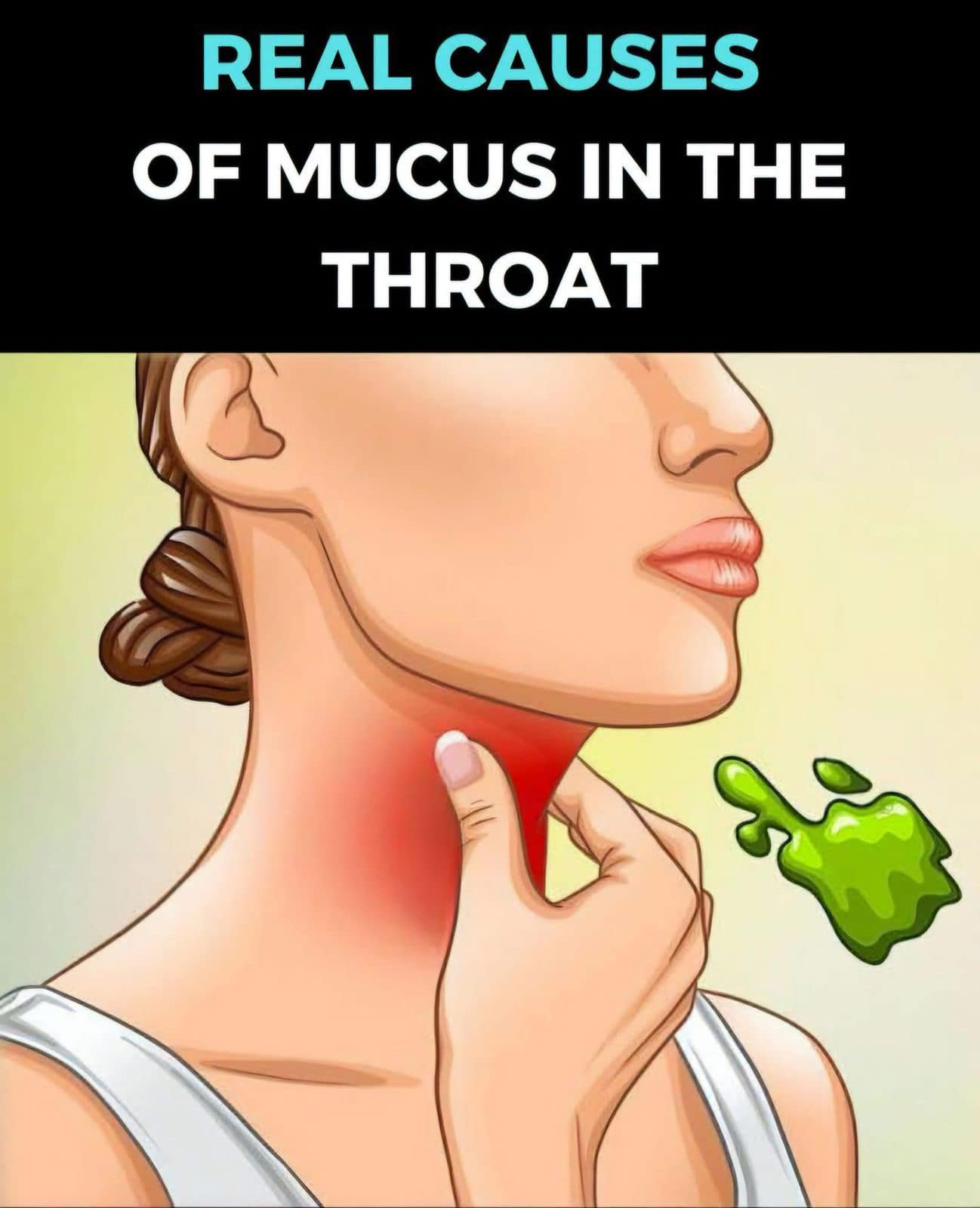Dealing with colds, sneezing, and constant coughing is never pleasant. But one of the most lingering and frustrating parts of a cold is the buildup of phlegm and mucus in your chest and throat. Even after the other symptoms subside, that thick, sticky feeling often hangs around and makes you feel miserable. It can trigger a nagging cough, make breathing more difficult—especially during physical activity—and overall, just drag down your quality of life. The good news is, you don’t have to suffer through it in silence or wait it out. There are several easy and natural remedies you can try at home to help clear the mucus and get back to breathing more freely and comfortably.

Mucus is a naturally occurring substance in the body. It’s produced by the mucous membranes lining the respiratory tract—your nose, throat, and lungs. While mucus plays an important role by trapping dirt, bacteria, and other harmful particles, too much of it can cause problems. Excess mucus or phlegm can lead to that dreaded feeling of tightness in the chest, persistent throat clearing, difficulty breathing, and even a raspy voice. This overproduction is often the result of viral infections like the common cold or flu, allergies, smoking, air pollution, or even inhaling certain chemicals. Fortunately, you can often manage and reduce mucus buildup at home with simple and safe techniques that don’t involve reaching for over-the-counter medications right away.
One of the most important things you can do is stay hydrated. Drinking plenty of water and other fluids throughout the day helps thin out mucus, making it easier to cough up or swallow. Warm liquids such as herbal teas, chicken broth, or warm lemon water are especially soothing and help break up mucus faster. Another simple remedy is gargling with salt water. Dissolve about half a teaspoon of salt in a cup of warm, filtered water and gargle for 30 to 60 seconds before spitting it out. Doing this a few times daily can reduce throat irritation and flush out excess mucus lingering at the back of your throat.
Steam inhalation is also highly effective. By breathing in warm steam, you help loosen mucus in your chest and nasal passages. Simply fill a bowl with hot water, place a towel over your head to trap the steam, and inhale deeply for several minutes. A warm shower can also have the same effect. Applying a warm compress to your chest or throat can also provide relief. Just soak a towel in hot water, wring it out, and place it on the affected area for a few minutes. This helps to open up airways and ease congestion.
Honey and lemon make a powerful duo when it comes to tackling mucus. Mix one tablespoon of honey and a squeeze of fresh lemon juice into a cup of warm water or tea. Honey coats the throat and reduces irritation, while lemon helps cut through the mucus. You can also boost this remedy by adding ginger or cayenne pepper, both known for their natural decongestant and anti-inflammatory properties. Another useful tool is a humidifier. Dry indoor air can thicken mucus and make it more difficult to expel. Running a humidifier in your bedroom, especially while you sleep, adds moisture to the air and helps keep your throat and nasal passages clear. Be sure to clean your humidifier often to prevent bacteria and mold growth.
Nasal irrigation is another great method to consider. Using a saline solution or a neti pot to rinse your nasal passages helps remove trapped mucus and allergens, providing quick relief from congestion. Just remember to always use sterile or distilled water to avoid introducing harmful bacteria. Lastly, avoid exposure to irritants like cigarette smoke, smog, and harsh cleaning chemicals. These substances can trigger even more mucus production and worsen your symptoms.
It’s also important to know what to avoid. Steer clear of dairy products, as they can sometimes make mucus thicker and harder to clear. Limit sugary foods and drinks, which may promote inflammation and mucus buildup. Avoid overusing nasal sprays or decongestants unless directed by a doctor, since they can lead to rebound congestion. Also, don’t suppress your cough too much—coughing is your body’s natural way of clearing out mucus.
If your symptoms continue for more than a couple of weeks, get worse, or come with fever or chest pain, consult a healthcare provider. These could be signs of a more serious condition. But for many people, following these natural remedies and staying mindful of irritants and dietary choices can go a long way in clearing mucus and restoring normal breathing. By incorporating these simple practices into your routine, you’ll be on your way to clearer airways and better respiratory health.





